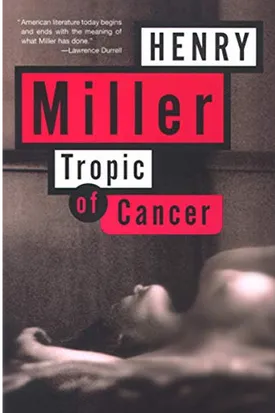Tropic of Cancer by Henry Miller is a landmark of modern literature and one of the most important novels of the 20th century. First published in 1934, the novel was banned for its graphic depictions of sexuality and nudity. It has since become one of the most influential and controversial books of the 1930s and beyond.
Tropic of Cancer tells the story of American expatriate Henry Miller, a struggling novelist and struggling youth, who has left the United States and moved to the cosmopolitan city of Paris in search of a new life. In Paris, Miller befriends the likes of Anais Nin and other bohemian artists and writers, who live in the bohemian society of Paris. The novel follows Miller and his group of friends as they enjoy the artistic culture of the city and explore their sense of freedom.
However, Miller and his friends’ experiences soon turn sour, as they become entangled in the throes of despair and poverty. Miller is forced to take up odd jobs in order to make ends meet, while his friends face similar struggles. Miller’s experiences in Paris culminate into an exploration of the human experience, with his search for meaning and self-understanding taking him deep into the depths of sexual experience, drugs, and the human condition.
The novel is characterized by its use of stream-of-consciousness and lyrical language, which create a hypnotic dreamlike landscape. It is often considered a departure from other traditional literature with its focus on sexuality, experimentation, and existentialism. Through the novel, Miller explores the idea of identity and how it can be shaped and influenced by social and cultural forces. Miller’s characters face the struggle of identity alongside the all-engulfing chaos of the world.
Tropic of Cancer remains a masterful and important piece of modern literature. Miller’s work has gone on to influence other writers and his work has often been read and discussed in a variety of contexts. The novel serves an important role in representing the freedom and experimentations of a new era. Its struggle to find identity and meaning in an ever-changing and chaotic world continues to be relevant to readers today. Tropic of Cancer is an important and beloved novel which has earned its place in the annals of literature.

